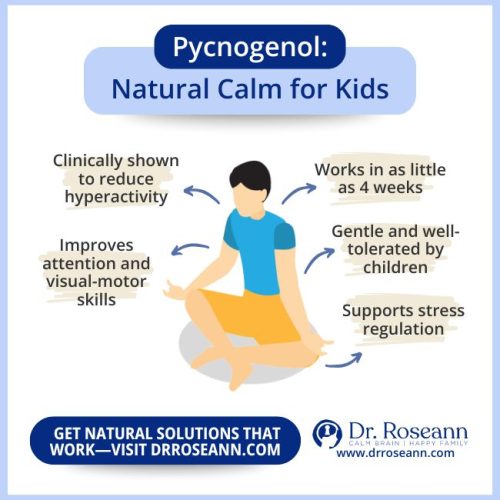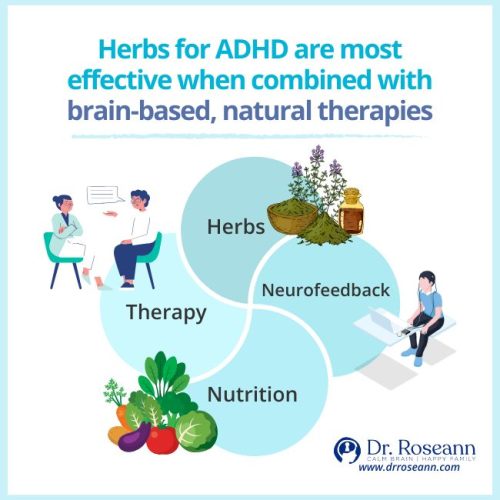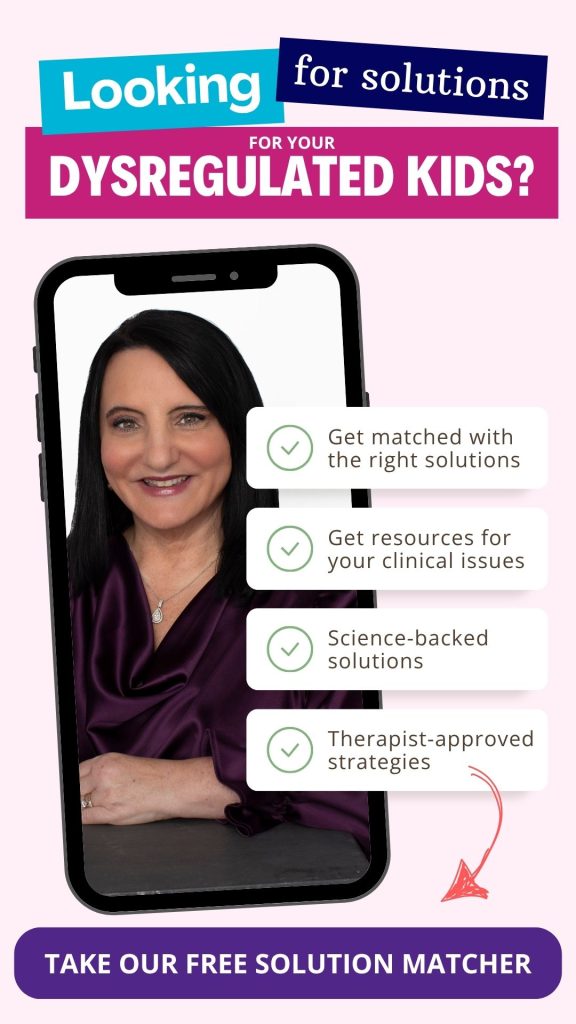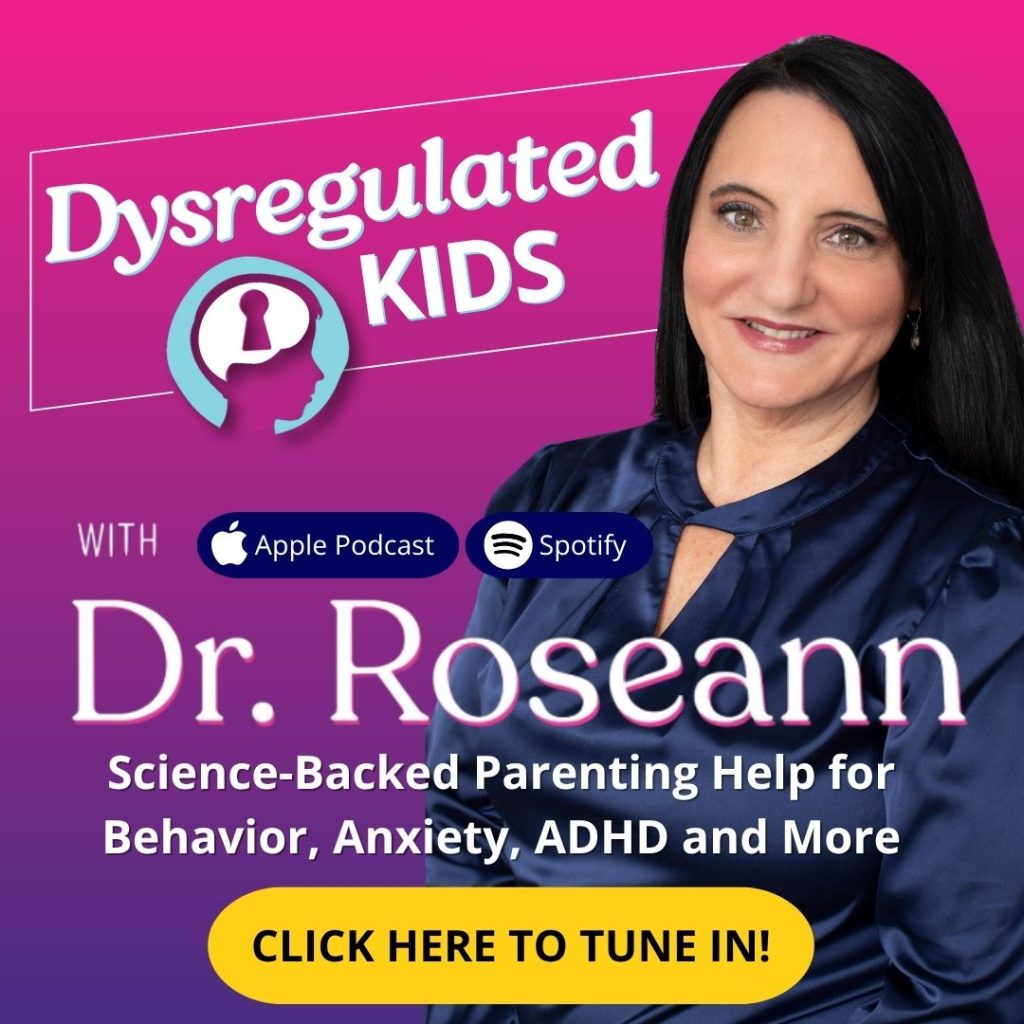Estimated reading time: 6 minutes
Discover the safest and most effective herbs to help calm an ADHD brain, reduce hyperactivity, and support focus—without the side effects of medication.
When a child struggles with focus, it affects more than just academics—it touches every part of their day, from home routines to friendships. Parents need safe, effective options beyond medication to support their child’s attention and emotional well-being.
New research shows that certain calming herbs can reduce hyperactivity and improve focus in kids with ADHD—without relying solely on medication. For parents looking for natural ADHD support, plant-based options like Ashwagandha, Ginkgo, and Ginseng offer real, science-backed hope.
Pycnogenol (French Maritime Pine Bark)

What Are the Best Herbs for ADHD in Children?
Parents often ask, “What can I give my child to help with focus that isn’t medication?” The good news is, the answer lies in nature’s medicine cabinet. For centuries, herbal remedies have been used to gently support mental clarity, soothe the nervous system, and improve emotional regulation.
Today, we have modern research to back up what traditional medicine has long known—certain herbs can be powerful allies in helping kids focus, stay calm, and feel more balanced throughout their day.
Herbs for ADHD
| Herb | Primary Benefit for ADHD |
|---|---|
| Ashwagandha | Reduces stress, regulates cortisol, supports emotional resilience, improves focus |
| Ginkgo Biloba | Enhances blood flow to the brain, supports focus and memory |
| Ginseng (American or Korean) | Improves attention, reduces impulsivity, boosts stamina |
| Pycnogenol (French maritime pine bark) | Reduces hyperactivity, supports attention and visual-motor skills |
| Avena Sativa (Green Oat) | Calms the nervous system, reduces mental fatigue, supports cognitive clarity |
Do Calming Herbs Really Help with Hyperactivity?
Yes—and the science backs it up. Several herbs have been clinically shown to reduce restlessness, impulsivity, and improve focus in children with ADHD.
Consider this:
- A clinical trial demonstrated that Pycnogenol, an extract from French maritime pine bark, decreased hyperactivity and boosted attention span in only four weeks (Trebatická et al., 2006).
These results show that herbal remedies can play a powerful role in calming the brain and supporting better behavior—without harsh side effects.
Key calming herbs for hyperactivity:
- Ashwagandha
- Ginseng
- Pycnogenol
How Do Herbs Support Focus and Emotional Regulation in ADHD?
Kids with ADHD often struggle with focus, impulsivity, and emotional ups and downs because of poor regulation in the brain’s prefrontal cortex and limbic system. Certain herbs help restore balance by:
- Supporting neurotransmitters like dopamine and serotonin
- Reducing inflammation and oxidative stress in the brain
- Enhancing cerebral blood flow and oxygenation
- Calming the autonomic nervous system (ANS)
Which Natural Supplements Are Safest for Kids with ADHD?
Safety always comes first. Most of the herbs above have strong safety records when used appropriately and under guidance. Many parents also find success using calming herbs in the form of teas—like chamomile —as a gentle, effective introduction to herbal support.
Look for:
- Age-appropriate formulations (e.g., glycerite vs. alcohol-based tinctures)
- Third-party tested herbal blends
- Herbs with research backing their use in pediatric populations
If your child is already on medication, check with your provider before adding herbs to avoid unwanted interactions.
Can Herbs Be Combined with Other ADHD Therapies?
Absolutely—and they should be. Herbal support can enhance the effects of therapies like neurofeedback, occupational therapy, speech therapy, and counseling by regulating the nervous system, increasing emotional resilience, and improving the brain’s ability to focus and learn. When the brain is calm and supported, other therapeutic interventions become more effective and sustainable.
Herbs work best when part of a whole-child approach that includes:
- QEEG Brain Mapping to understand brain function
- Neurofeedback and behavioral therapies
- Magnesium, Omega-3s, and other nutrient support
- Consistent routines and emotional co-regulation

Therapist Insight About ADHD Herbs
Over the years of working with thousands of kids and families, I’ve seen one truth again and again: a calm brain is a teachable brain. Before we jump into behavior charts or medication, we have to calm the storm inside. That starts with regulation—small, daily steps that help the nervous system settle so kids can focus, connect, and grow.
Try this today: Add lemon balm or chamomile tea to your child’s wind-down routine. Why it works: These herbs activate the parasympathetic nervous system, helping your child shift from fight-or-flight to rest-and-digest.
Remember: It’s not about doing everything at once—it’s about building regulation, one small step at a time.
Brain Science Spotlight on Herbs for Focus
Recent research from the University of Adelaide found that children with ADHD have significantly lower levels of gamma-aminobutyric acid (GABA), a neurotransmitter that helps regulate brain activity and reduce excitability.
Dr. Susan B. O’Neill, lead author of the study published in Neuropsychopharmacology, explains: “This imbalance in brain chemistry may underlie the emotional and behavioral dysregulation we see in children with ADHD.”
What this means for your family: Herbs like Ashwagandha naturally support GABA activity. When GABA is optimized, kids are better able to manage stress, sit still, and stay focused.
How Long Do Herbal Remedies Take to Work for ADHD?
Most parents see initial calming effects within 1–2 weeks, but lasting changes take consistency.
General timeline:
- Week 1–2: Initial calming, better sleep, fewer meltdowns
- Week 3–4: Improved attention, lower reactivity
- Week 5–8: Stronger focus, better behavior, more emotional control
Herbs like Ginkgo and Ashwagandha tend to take longer but yield lasting improvements in memory and regulation.
What Should Parents Look for in Herbal ADHD Supplements?
Not all supplements are created equal. Here’s what to check before buying:
- Standardized extracts for consistency and potency
- Kid-safe dosages
- No artificial dyes or fillers
- Combination formulas (e.g., Magnesium + Ashwagandha + Lemon Balm) for synergy
- Third-party testing and transparency
We started using a magnesium and Ashwagandha combo that also had GABA support—and it was the first time my 8-year-old was able to sit and finish homework.
Are Herbs a Good Alternative to ADHD Medication?
They can be—for many families.
Herbs aren’t a cure-all, but they offer a gentle, effective path for:
- Families who prefer to avoid or delay medication
- Kids who experience side effects from stimulants
- Children with co-occurring anxiety, sleep, or sensory issues
Always work with a qualified provider to monitor symptoms and ensure safety.
Blueberry Extract for Brain Boosting
Though technically a fruit and not an herb, blueberry extract deserves special mention. Rich in anthocyanins, this potent brain-boosting compound helps reduce oxidative stress, improve memory, and support focus and executive functioning.
Adding blueberry extract—or simply more fresh blueberries—to your child’s daily routine is an easy, kid-friendly way to support brain development and regulation.
Considering Herbs for Your Child with Focus and Attention Issues?
If you’ve been wondering whether herbs can really help your child’s ADHD—yes, they can. With science-backed herbs, targeted supplements, and natural strategies, you can reduce hyperactivity, boost focus, and support long-term brain health without side effects.
Start small. Stay consistent. And remember—you don’t have to do this alone.
FAQs About Herbs for ADHD
What are the most effective herbs for ADHD?
Ashwagandha, Ginkgo Biloba, Ginseng, Pycnogenol, and Avena Sativa are among the top herbs shown to improve focus, calm behavior, and support cognitive function in kids with ADHD.
Are herbal supplements safe for children?
Yes—when used correctly and under the guidance of a professional. Look for kid-specific dosages and avoid combining with medications unless approved.
Can I use herbs with my child’s current medication?
Some herbs can be combined, but always consult your provider first to avoid interactions.
Will herbs make my child sleepy?
Some calming herbs like Ashwagandha and Lemon Balm can promote relaxation and sleep but typically don’t cause daytime drowsiness when dosed correctly.
How do I know if herbs are working?
Look for changes in mood, sleep, focus, and behavior over 3–6 weeks. Keep a symptom tracker for the most accurate picture.
Citations
Mischoulon D. (2018). Popular Herbal and Natural Remedies Used in Psychiatry. Focus (American Psychiatric Publishing), 16(1), 2–11. https://doi.org/10.1176/appi.focus.20170041
Sarris J. (2018). Herbal medicines in the treatment of psychiatric disorders: 10-year updated review. Phytotherapy research : PTR, 32(7), 1147–1162. https://doi.org/10.1002/ptr.6055
Dr. Roseann is a mental health expert in Self-Regulation who frequently is in the media:
- Healthline Understanding Self-Regulation Skills
- Scary Mommy What Is Self-Regulation In Children, And How Can You Help Improve It?
- The Warrior Parent Podcast It’s Gonna Be OK! Changing Behaviors and Responses (And The Magic of Magnesium)In Your Family with Dr. Roseann Capanna-Hodge
Always remember… “Calm Brain, Happy Family™”
Disclaimer: This article is not intended to give health advice and it is recommended to consult with a physician before beginning any new wellness regime. *The effectiveness of diagnosis and treatment vary by patient and condition. Dr. Roseann Capanna-Hodge, LLC does not guarantee certain results.
Are you looking for SOLUTIONS for your struggling child or teen?
Dr. Roseann and her team are all about science-backed solutions, so you are in the right place!
©Dr. Roseann Capanna-Hodge










